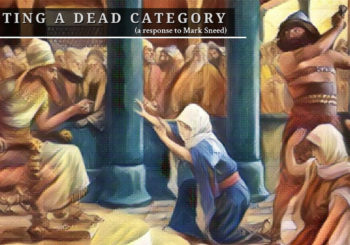Constitution, Class, and the Book of Deuteronomy
Abstract
The book of Deuteronomy has a dual agenda in its blueprint for the polity. First it rejects the exclusionary power strategies exhibited routinely in the monarchic systems of the ancient Near East, instead proposing a collective power strategy, in which power is not only shared, but is primarily invested in the community. Then Deuteronomy rejects the institutions and language of tribal patriarchy in favor of collective, national identity. Whereas earlier studies of Deuteronomy’s plan for the regime focused on chapters 16–18, this study maintains that one must read the entire book as an integrated whole in order to fully perceive the intricacy of its plan for a society in the land.
Joshua Berman, “Constitution, Class, and the Book of Deuteronomy,” adapted from Created Equal: How the Bible Broke with Ancient Political Thought (Oxford, 2008).
Subscribe now to receive periodic updates from the CHT.





